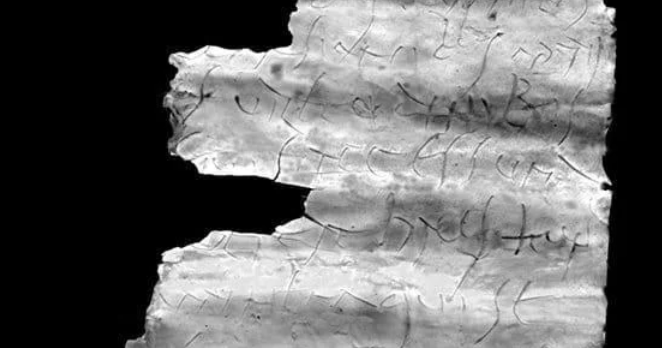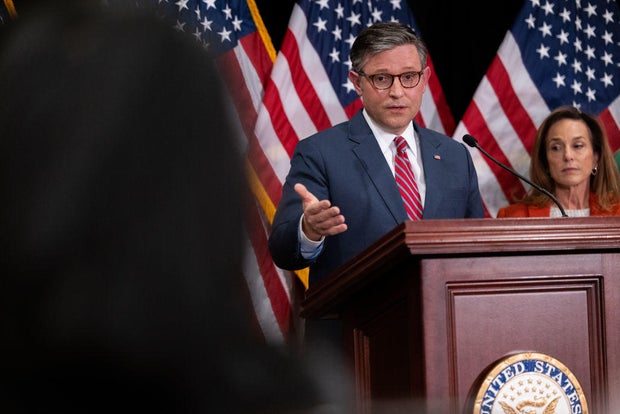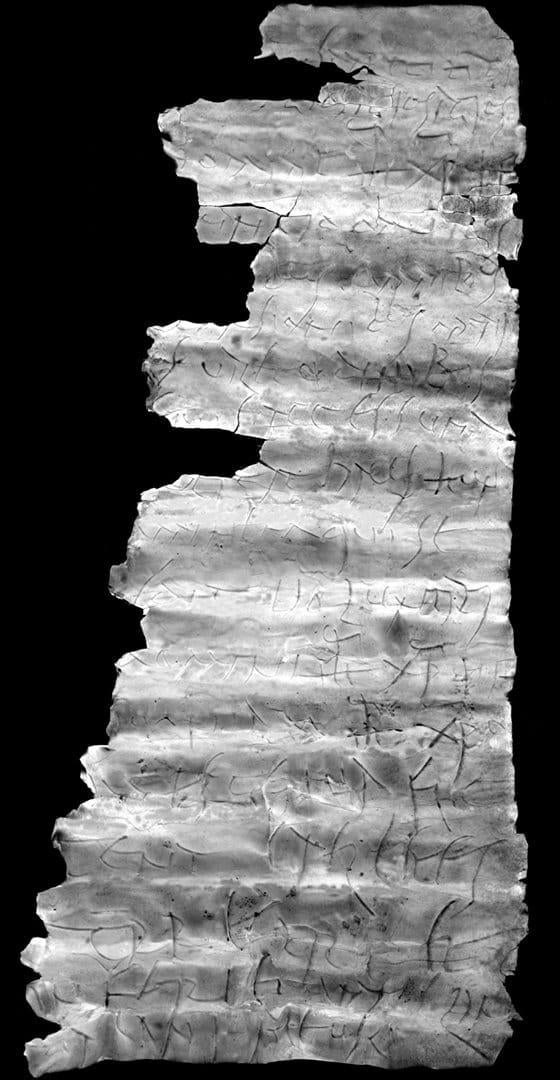CBS News
In gridlocked Congress, unlikely issue of cellphones in schools forges bipartisan bonds

Congress may have found at least one clear signal out of its partisan dead zone: cellphones. In a heated election year, in which a narrowly divided Congress is largely stalemated on most legislation and disrupted by heated rhetoric, fears about the impact of cellphones and social media on children have united political rivals.
In rapid succession over the past few months, bipartisan groups of members of Congress have proposed legislation or amendments to curb, shift or study the impact of phones and social media on kids — especially in classrooms.
“Teachers dislike cellphones the way the devil hates holy water,” Sen. Tom Cotton, a Republican from Arkansas, told CBS News. Cotton, who has endorsed Donald Trump’s 2024 run for the White House and blasted the criminal prosecutions of Trump as politically motivated, has nonetheless found a Democrat with whom to partner to address the impact of phones in schools: Democratic Sen. Tim Kaine of Virginia, the Democratic Party’s 2016 nominee for vice president.
Kaine acknowledges the two make “an interesting pair.” But he told CBS News the untraditional coalition helps generate headlines, credibility and traction for their efforts.
Cotton and Kaine secured approval last month by the Senate Health, Education and Labor committee to launch an Education Department study of school district cellphone policies. The study would review the impacts of smartphone use during class time on academic achievement and youth mental health. It would also examine the impacts of policies schools have chosen to implement to restrict student cellphone use.
“This issue is troubling to me, particularly the impact of (phones) on mental health issues,” Kaine said. “I hear it all the time as I travel around to schools.”
“I’ve not heard from a single teacher that wants kids to have their own cell phones in the classroom,” Cotton said. “We can have a gold standard-style study from the Education Department that local schools and state legislatures can use to make decisions.”
Debate over the Cotton-Kaine proposal at a Dec. 12 hearing of the Senate Health Committee lasted just minutes before the plan was overwhelmingly approved.
Cotton and Kaine are also pushing for a $5 million pilot project to provide some schools with secure containers where students can store their phones during school hours to reduce the use of phones and the distractions they cause during instruction.
“It’s not big money. But I think the design of our bill was to give a nudge to a trend that we already see taking off,” Kaine said. “By us doing it in a bipartisan way, we can give these (school efforts) a nudge forward.”
Some school systems have already experimented with phone-free policies, which could give federal officials examples to study.
Lynne Smith, a longtime health teacher at Nathanael Greene Middle School in Providence, Rhode Island, told CBS News her school’s new cellphone-free classroom policy has led to dramatic improvements. Smith said, “Our kids are focusing. Less distractions, less confrontations, their mental has improved.”
Online safety
Other proposals focused on the impact of social media on kids have also sparked bipartisan alliances. Democratic Sen. Richard Blumenthal of Connecticut, and Republican Sen. Marsha Blackburn of Tennessee have teamed up to sponsor and champion legislation to bolster online safety for kids. Their bill stiffens rules for social media companies, requiring tighter privacy protections for young users and independent audits to study the risks of social media platforms to minors.
The two have undertaken a busy tour of media interviews to bolster support for their proposal. Ahead of a Wednesday hearing on big tech’s impact on child safety, Blumenthal and Blackburn issued a joint statement that said, “We are continuing to work with various stakeholders and colleagues on the bill to ensure we have strong legislation that will swiftly become law.”
TikTok
A growing number of efforts and proposals to regulate or limit social media giant TikTok have also circulated through Congress. And they’ve blurred traditional party lines.
Washington GOP Rep. Cathy McMorris Rodgers, the chair of the House Energy and Commerce Committee, made headlines in March 2023 when she called for a ban on TikTok.
“TikTok collects nearly every data point imaginable, from people’s location, to what they type and copy, who they talk to, biometric data, and more,” she said at a committee hearing.
The company’s surging popularity with teenagers and its connection to the Chinese government has elicited proposals, legislation and concerns across the political spectrum.
New Jersey Rep. Josh Gottheimer, a Democrat who has helped lead the House’s bipartisan Problem Solvers caucus, proposed an amendment to legislation last month to limit TikTok’s influence on college students. The amendment, which failed to pass the House Rules Committee, would have prohibited colleges and universities from marketing on TikTok.
The spate of legislation comes amid a growing wave of concerns from congressional constituents.
Gottheimer told CBS News, “I hear about Tik Tok all the time, and about making sure parents have the tools to be able to see what their children are doing on social media.”
CBS News
Lawmakers, Pentagon weigh in on East Coast drone sightings

Watch CBS News
Be the first to know
Get browser notifications for breaking news, live events, and exclusive reporting.
CBS News
What’s in the continuing resolution to avert a government shutdown? See key details from the spending bill.

Washington — Congressional leaders unveiled a stopgap measure late Thursday to keep the government funded for three months, pushing a larger funding fight into the new year.
But the 1,500 page measure, known as a continuing resolution, would do more than keep the government funded at current levels to prevent a government shutdown. The bill is laden with dozens of add-ons that make it resemble the massive end-of-year spending packages that GOP leaders have vowed to avoid.
House Speaker Mike Johnson said ahead of the measure’s release on Tuesday that it was originally intended to be “a very simple, very clean” stopgap funding measure to get the party into the new year. But the Louisiana Republican said a “couple of intervening things” occurred, and he is now left to deal with growing discontent among members of his own party.
Here are some of the bill’s major add-ons:
Disaster funding
The legislation includes $110.4 billion in disaster aid: $29 billion for FEMA’s disaster relief fund; $8 billion for federal highways and roads; $12 billion for the Community Development Block grants and disaster relief; and $3.25 billion for Tribal Assistance grants. It also replenishes the Small Business Administration’s disaster loan program with $2.2 billion. The program was exhausted in the aftermath of Hurricanes Milton and Helene earlier this year.
The measure also includes $21 billion in disaster relief for farmers and $10 billion in economic assistance for farmers, along with a one-year extension of the farm bill.
RFK stadium transfer
The legislation clears the way for a long-sought priority in Washington, D.C.: transferring administrative jurisdiction over the RFK Memorial Stadium Campus to the district, which will allow the city to negotiate the return of the Washington Commanders football team.
The Commanders currently play in Landover, Maryland, and D.C. Mayor Muriel Bowser has vowed to bring the team back to the District.
Baltimore bridge rebuilding
The measure also includes a commitment from the federal government to pay the entire cost of rebuilding Baltimore’s Francis Scott Key Bridge, which collapsed in March.
Sens. Chris Van Hollen and Ben Cardin of Maryland said in a joint statement Tuesday that the provision “will allow the bridge to be built as quickly as possible.” And they noted that federal taxpayers will be reimbursed by insurance payments and through the results of litigation against the company that operated the cargo ship that crashed into the bridge.
Nathan Posner/Anadolu via Getty Images
Pay raise for members of Congress
After more than a decade of blocking pay raises in Congress amid concern over the issue becoming a political liability, the continuing resolution includes a provision that allows an automatic cost of living increase to go into effect for lawmakers.
Since 2009, lawmakers have earned $174,000 annually, with higher salaries for some members of leadership.
Health care policy extenders and reforms
Within the legislation is a health care package that spans hundreds of pages. It takes on a number of priorities for lawmakers, from extending telehealth flexibility under Medicare to a five-year reauthorization of legislation aimed at combatting the opioid crisis and a measure to prevent pandemics. The legislation also requires pharmacy benefit managers to provide detailed data on drug spending and pass on the full amount of rebates to lower drug costs for American consumers.
Transparency in ticket and hotel prices
The funding measure also includes provisions aimed at making hotel and live-event ticket prices more transparent by prohibiting deceptive advertising. The legislation requires that ticket sellers and hotels must disclose the full price, while the ticket sellers must guarantee refunds in the event of cancellation or postponement.
Addressing drone threats
Among the legislation is a measure to counter threats from drones following a slew of mysterious drone sightings on the East Coast that have prompted concern. The legislation extends a portion of the Homeland Security Act that authorizes officials to track unmanned aircrafts and disrupt their control.
contributed to this report.
CBS News
Ancient inscription could rewrite history of Christianity north of Italy, archaeologists say

Archaeologists have discovered an inscribed silver amulet that one theologian now says may rewrite the history of Christianity north of the Alps mountain range.
The inscribed amulet was found buried in a grave in Frankfurt, Germany in 2018, according to a news release from the city. The amulet is just over an inch in size, the city said, with an inscribed thin silver foil rolled up inside. It took years to determine what the inscription said: It had to be deciphered by a computer scan because the foil was too fragile to unroll. The so-called “Frankfurt Silver Inscription” was presented to the public earlier in December.
The inscription was determined to be a statement of faith in Jesus Christ, written in Latin. The statement shows that the wearer “was clearly a devout Christian, which is absolutely unusual for this time,” the city said.
Researchers dated the grave where the amulet was found to between 230 and 270 AD. This is the earliest evidence of Christianity north of the Alps, the city said: All other finds are several decades younger, with “reliable evidence” of the religion in the region dating back to the 4th century.
Leibniz Institute for Archaeology in Mainz
The inscription mentions no religion besides Christianity, which researchers said is unusual. Up until the 5th century, these kind of amulets “always contain a mixture of different faiths,” such as Judaism or paganism. Instead, it is entirely based on Christianity. At one point the invocation “Holy, holy, holy!” is present. Researchers previously had dated that invocation no earlier than the 4th century. The amulet also included quotations from the Bible used by Christians at that time.
“The ‘Frankfurt Inscription’ is a scientific sensation,” city mayor Mike Josef said in a translated statement. “It will force us to turn back the history of Christianity in Frankfurt and far beyond by around 50 to 100 years. The first Christian find north of the Alps comes from our city: we can be proud of that, especially now, so close to Christmas. Those involved have done a great job.”
Researchers said that this find will lead to a reevaluation of the burial ground where the amulet was uncovered. It will also lead to a revision of ideas about Christianity north of the Alps.
German church historian Ulrich Volp told the Evangelical Press Service that the amulet can be used to help understand how Christianity spread through the Roman Empire in the 3rd century, even amid persecution.
“The significance of the discovery can hardly be overestimated,” Volp said.
The news comes about six months after a experts in Germany said a newly deciphered manuscript dating back 1,600 years was determined to be the oldest record of Jesus Christ’s childhood.





